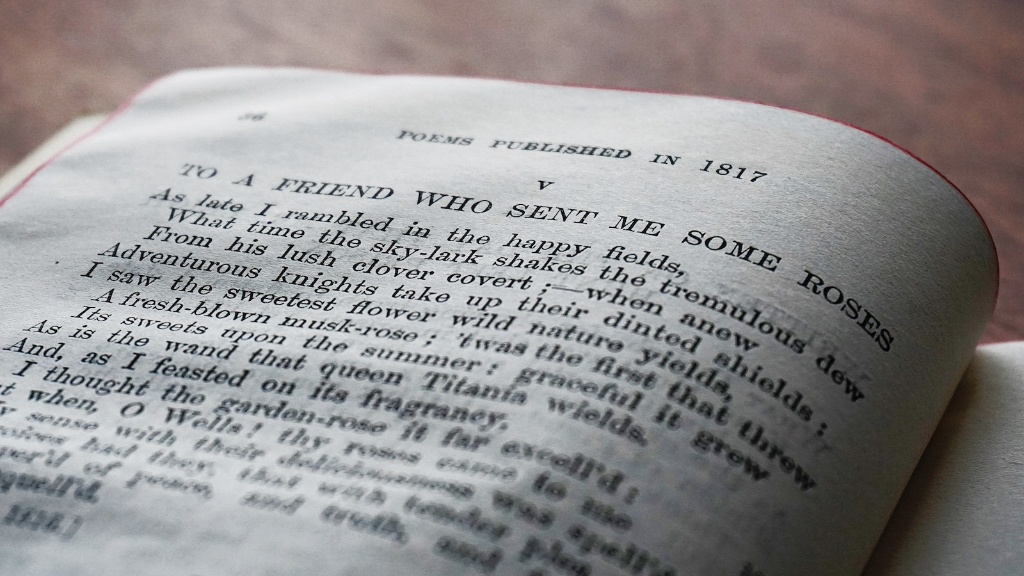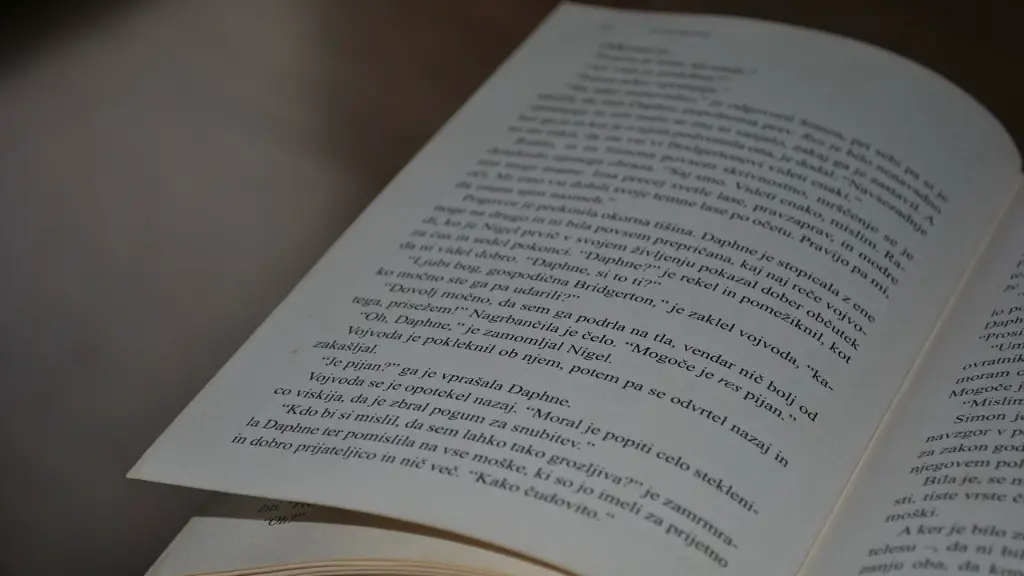Elizabethan poetry is a form of poetry largely written during the reign of Queen Elizabeth I in the Elizabethan era, one of the most fascinating periods in English history. This fascinating period has left its mark on Britain in many forms, including art and literature. Elizabethan poetry was highly prized and praised by the court literary society, including the famous playwrights Shakespeare, Marlowe and Jonson.
The characteristics of Elizabethan poetry are largely defined by its usage of the traditional forms of poetry such as sonnets, pastoral poetry, epithalamiums (poems for weddings), and various lyric forms. There is also a focus on writing of verse that expresses emotions such as love, friendship, death, and religion.
The Elizabethan poetry was very influenced by other European poetic traditions particularly the Italian poetry of the Petrarchan tradition. This includes the focus on writing sonnets to express strong emotions and explore deep philosophical questions. This form of writing was often used to express the emotions and ideas of courtly love and seduction, which was very popular in Elizabethan society.
Elizabethan poets saw no separation between the literary world and the courtly world. Many poems were written about the royal court and courtly life. This included poems about the queen and her courtiers, as well as poems about the important events in Elizabethan courtly life such as jousts, tournaments, hunts, masques, and progresses.
Elizabethan poets such as Edmund Spenser, William Shakespeare, Christopher Marlowe, John Donne and Ben Jonson are considered to be some of the finest poets in the English language. Elizabethan poetry also brought with it an emphasis on the use of imagery and symbolism to express feelings and ideas. This is especially evident in the work of John Donne and William Shakespeare. The use of imagery and symbolism in Elizabethan poetry was a way to explore deeper philosophical ideas, as well as to express strong emotions.
The themes of Elizabethan poetry were often those of courtly love, death, religion and patriotism. Poems were written both to express the courtly ideal of love and to question the power of love over others. Religion was also a major theme in Elizabethan poetry and poets questioned the nature of faith and the existence of God. Patriotism was also a major theme in Elizabethan poetry as national pride was an important element of Elizabethan society.
Finally, Elizabethan poetry was closely linked to classical literature. Poets often drew on classical sources such as the Greek and Roman classics when writing a poem. They often imitated the style and language of classical authors, as well as drawing on themes from classical literature.
Protestant Reformation and Elizabethan Poetry
The impact of the Protestant Reformation on Elizabethan poetry was immense. With the introduction of Protestantism, many of the traditional aspects of Roman Catholic doctrine were discarded, and the notion of ‘private prayer’ was widely adopted. This internalisation of faith led to a new focus on and understanding of man’s relationship with God. This being so, poets wrote about their personal relationships with God in a variety of ways. John Donne is a notable example of a poet whose writing usually explores the personal relationship between a human and his or her Deity.
The Protestant Reformation also brought with it a spotlight on the concepts of vocation and personal calling. To this end, many authors sought to express the importance of living out one’s Christian life and ideals. John Donne is renowned for his exploration of this idea in his work and is often considered a pioneer of the “metaphysical” school of Elizabethan poetry. Likewise, George Herbert often wrote about expressing personal faith in a way that was creative and relatable, as seen in his iconic poem “Love (III)”.
Elizabethan poetry can be read as a reflection of many aspects of the Elizabethan period in which it was written, including its spiritual, moral, and political beliefs. Reformation was a transformative event for England and for its literature, and Elizabethan poets created work that, then as now, challenges readers to consider the relationship between outer actions and interior beliefs.
Importance of Religious Themes in Elizabethan Poetry
One of the most important aspects of Elizabethan poetry is its focus on religious themes. During the reign of Elizabeth I, the Church of England was firmly established as the main religion, and most writings were dedicated to promoting the values associated with Christianity. This caused religious themes to be pervasive in Elizabethan poetry. The works of many poets contain references to Christianity and its history, as well as moral lessons and religious metaphors.
The works of John Donne are particularly famous for their heavy reliance on religious themes. Donne’s poetry often focused on the individual’s relationship with God and explored the idea of divine intervention in human affairs. Other writers also expressed their belief in the power of religious guidance in their works. For example, George Herbert often wrote about relying on divine strength and guidance to face difficult situations in life. William Shakespeare expressed similar themes, often contrasting faith in the Catholic Church with faith in God.
Elizabethan poetry also explored themes such as the afterlife, temptation, and mortality. These themes often served as moral lessons, warning readers of the dangers of leading a life without faith or of leaving behind the values associated with Christianity. In the hands of writers like John Donne, religious themes were explored with great depth, often incorporating both metaphysical concepts and Christian beliefs into their works.
Style and Form of Elizabethan Poetry
Elizabethan poetry is known for its distinctive writing style and forms. Many of the most well-known writers used a mixture of traditional poetic forms such as sonnets, epithalamiums (poems for weddings), and pastoral poetry, as well as lyrical forms. Shakespeare’s works are the most famous examples of Elizabethan poetry, and he made great use of iambic pentameter, rhyme, and poetic forms such as the sonnet and the blank verse.
In addition to these popular forms, Elizabethan poets also explored more unconventional writing styles. John Donne’s works are famous for their metaphysical themes and symbolism, while Christopher Marlowe was known for his vivid and often contentious writing style. William Shakespeare’s works often moved away from traditional poetic forms, with dramatic monologues and soliloquies being some of the most famous examples of this new form of writing.
The writing style of Elizabethan poets was also heavily influenced by their religious beliefs. As previously mentioned, many of the topics discussed in Elizabethan poetry concern religious themes and values, and the language used to express these ideas often draws on religious terms and concepts. This universal presence of religious ideas and references in Elizabethan poetry shows how closely the written word was connected to actual faith during this period of time.
The Legacy of Elizabethan Poetry
The legacy of Elizabethan poetry is still evident today, and its influence on literature can be seen in many genres, from popular Shakespeare plays to contemporary poetry and novels. Many of the themes explored in Elizabethan poetry, such as love, death, and the quest for religious understanding, are still relevant today. The works of the Elizabethan poets, particularly the great writers such as Donne and Shakespeare, continue to inspire and challenge readers to explore the deeper questions of human existence.
Perhaps Elizabethan poetry’s greatest legacy is its reminder of the power of religious topics and values. In a time when religion was a driving force in Elizabethan life, many authors wrote about religious ideas and topics in their works. This serves as a reminder of the importance of religious faith in literature and still influences the way authors write and think about religious topics today.
Elizabethan Poetry and Gender Roles
The Elizabethan period was a time when women were very much constrained by societal norms. Despite this, many women nonetheless wrote poetry during this time, a testament to their creativity and determination in the face of such restrictions. Women who wrote during this era explored a variety of topics and often wrote about the struggles and joys of living in a male-dominated world.
Elizabethan women poets wrote about topics such as love, marriage, and family, often exploring the expectations placed on women in society. They often wrote from a personal point of view, providing readers with an insight into the struggles and joys experienced by women during this period. Poets such as Aemilia Lanyer and Katherine Philips were renowned for their works, and they both sought to challenge the widely-held notion that female poets had little to say in regards to literature and poetry.
Moreover, women poets of the Elizabethan era often explored religious themes, specifically in regards to the female experience of faith. They wrote about religious feminism and explored the notion of a combined male and female faith, offering readers a unique insight into the often-forgotten female perspective of Christianity. Works by authors such as Christina Rossetti and Alice Meynell were heavily influenced by religious feminism.
Political Themes in Elizabethan Poetry
Being written during a period of drastic political change and upheaval, Elizabethan poetry also addressed the issue of politics and society. Poets often wrote about the politics of their time, often expressing their own political views and experiences. They explored the growing tension between England and other European states, as well as discussing the politics of the British court and the religious division between English Catholics and Protestants.
Works by John Donne, particularly his later works, are renowned for their polemical preoccupation with politics. His poems often focused on the international situation and the implications of different policies and politics. Other poets such as George Herbert also wrote about the political issues of their time, often discussing the ethical implications of different government decisions.
Finally, the works of Elizabethan poets are often seen as a reflection of their time. Although written hundreds of years ago, their works still resonate today, as they express many of the same concerns and values that people have about politics and society. Even today, Elizabethan poetry can still provide readers with insight into the political ideologies and beliefs held by people living during that era.





